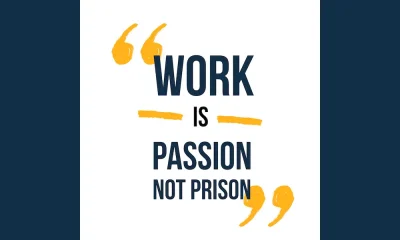General
Interviewing A Business Broker To Sell Your Business

You’re ready to sell your business to move on to new challenges or to retire.
In the current market conditions, you know your business will likely fetch a reasonable price due to a solid financial performance and business growth potential, but how do you go about selling it?
Generally, using a business broker is a good idea. However, you may be sitting on the fence about using one even when you may not have a lot of other options.
One reason to use a business broker is a lack of time. If you know you have limited time to work with potential buyers, and as such, you are not easily contactable, then don’t attempt to front the sale of your business. Plus, if you’ve never sold a business, you likely lack the knowledge and skills to find buyers and sell it for a reasonable price.
This business blog article can help you choose the right business broker. The following questions to ask a broker when selling a business will ensure you hire the right one.
Interviewing Prospective Business Brokers
Avoid cutting corners when interviewing prospective business brokers. Have a list of questions that must be asked and answered. Your goal is to seek to understand the experience and knowledge of a business broker by gaining insight into these areas:
- Industry qualifications
- Experience selling businesses
- The sales success of similar businesses
- Buyer database and networks
- Selling Process
Experience, Expertise, Market Knowledge
Ask prospective business brokers how long they have been a broker.
To sell your business, you don’t need a top business broker. You need the most experienced and successful broker within your industry.
1. What experience do you have selling this type of business?
Not all businesses are equal; ideally, you want to engage a business broker with experience marketing a business similar to your company. Why? Your business may have more goodwill, which may need more explanation to attract a buyer.
Business brokers specializing in a location or sector have the buyer network, database, and contacts to contact for intel and market knowledge.
2. How many active buyers are in your database, and how useful is this?
This a good question, but I don’t expect to get an exact answer to this question. A more likely response will be an estimate, e.g., we have 2000+ active buyers. You could ask a more targeted question, e.g., how many active buyers will be interested in my company?
3. What is your knowledge of current market conditions for businesses in my industry and location?
To represent your business to prospective buyers, the broker needs to know what’s going on in the economy and other areas associated with PEST (political, economic, environmental, social, and technology) that impact supply, demand, and price.
4. Can you tell me about some of your recent sales and provide references?
All active brokers will have evidence of their sales history and a list of happy customers.
Ask for references or case studies from previous clients. The sales activity needs to be recent so it is relevant to current market conditions.
5. Are you affiliated with networks, associations, or trade groups?
With this question, you’re seeking to understand the broker’s reach. What you want to know is their access to potential business buyers.
Listing a business for sale on sites is usually insufficient to attract the right buyer. If it was that easy, we’d all do it, and there’d be no need for a business broker.
Your broker should be well-connected with entrepreneurs, business owners, and investors and ideally know some of the leaders you know.
Also, when they are members of relevant professional business broker associations, you can contact them for assistance if required.
Valuation, Marketing, Reporting, Buyer Screening
What is vital is knowing if it’s worth selling your business. Your broker should be able to give you information on what your business could be worth in the current market.
Additionally, the broker will have a marketing strategy, which you need to find out what it entails and how you learn of its process, i.e., reporting.
1. How much do you think my business is worth?
You’re not likely to get the answer you’re looking for, nor should you put a business broker on the spot with this question without presenting your financial summary. Your accountant should be engaged to deliver the financial position of your business, and only when this information is available can a business broker provide a guesstimate of a sales price.
2. How will you go about marketing my business?
Business brokers are salespeople. They will have skills in marketing and sales. What you want to know is what they intend to do for you to sell your business. Will they use social media? Will they use industry magazines? Get evidence of successful marketing campaigns that they managed to attract buyers.
3. What are your prospective buyer reporting and feedback process?
Get the details to set the right expectations for activity and results. Your broker should use a CRM like SalesForce to manage their training and reporting.
4. How will you screen prospective buyers?
When you know the template and criteria used to match buyers, you can provide input to further qualify them to save time.
Sales Contract, Fees
Read the sales contract and also consider giving it to a legal professional with experience in managing business sales.
1. Can I have a copy of your listing contract and fee structure?
You must understand what service you’re signing up for and how much it will cost. This is when you seek legal assistance to review the contract to ensure you understand your legal obligations. Plus, your lawyer may wish to do some investigative work on the broker to ensure he or she is a professional.
Therefore, the key to this process is reading the fee structure and when payments are due. Is there a retainer to pay or upfront fees for marketing? Compare the fee structure and seek legal advice on the best deal.
Additionally, how long is the contract for? You may want to negotiate the terms you’re contracted to a business broker. A shorter one is better, so you can choose another broker if the one you have engaged with is not working out.
Negotiations and Deal Structuring
Ask all prospective business brokers the following:
1. How do you handle negotiations between buyers and sellers?
2. Can you provide examples of successful deal structures you’ve facilitated?
The key is to have open and transparent communication with the business broker to ensure a successful partnership in selling your business.
Final Thoughts
Selling your business can be emotional and a tough call to make, even when you know you can sell for a considerable profit. However, the process can work smoothly when you have chosen the right broker.
Other considerations in your selection process should include communication. Find out how the prospective brokers like to communicate, i.e., which channel they use. Some will prefer WhatsApp or Messenger, while others will want to call you.
Plus, you may be interested in the broker that provides post-sale support. For example, how they assist with the transition of ownership.
However, the primary objective is to connect buyers and sellers, streamline the sales process, and ensure a successful transaction.






